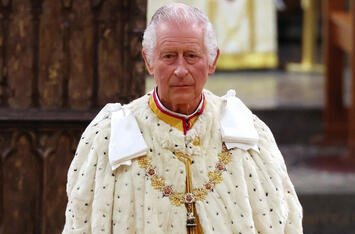
The pomp and ceremony of this weekend’s coronation of King Charles III could not hide the fact that Britain, once the most powerful nation on Earth, has become slightly dysfunctional and even a bit weird. In fact, this dysfunction is not just afflicting the United Kingdom itself, but also the broader Anglosphere, right from the antipodes up to the snowy wastes of Canada.
‘Every nation or group of nations has its own tale to tell’, noted Winston Churchill in A History of the English-Speaking Peoples. To be sure, the Anglosphere has an ugly legacy concerning its treatment of indigenous people, slaves, convicts and indentured servants, not just in imperial possessions but also in the United States both before and after independence. Some mainly non-white former colonies, whose populations are made up largely of the descendants of slaves and indentured servants, are now seeking reparations. Some are also moving to eliminate the last vestiges of loyalty to the British crown.
Yet despite this, in modern times, many of the countries formerly colonised by Britain have since served as beacons of opportunity for millions. Led by the United States, the Anglosphere countries account for four of the 10 most attractive destinations for immigrants worldwide. However, this legacy of opportunity appears to be fading. Unless there is some revival of the old Anglo spirit, a new era, likely dominated by China, India and other resurgent countries, seems in the offing.
Much of this decline of the English-speaking world is self-inflicted. A kind of slow suicide is taking place in which once-proud nations seem determined to squander their economies, their self-reliance, their moral code and, most critically, their belief in law, due process and representative democracy. The Anglosphere is a civilisation increasingly focussed on creating a more ecologically ‘sustainable’ way of life, and far less willing to compete with more vibrant foreign cultures.
In this sense, the newly crowned Charlies III is a perfect sovereign for a culture primed for decline. Charles is the model of a modern plutocrat. He has inherited a huge and growing fortune, including nearly $10 billion in real-estate assets, and he holds the ‘correct’ eco-friendly views on how his subjects should live. Although many among the elites consider his green politics to be ‘enlightened’, Charles’s worldview is fundamentally backward-looking or, I would even suggest, neo-feudalist.
Like a medieval millenarian, Charles has asserted, for well over a decade, that humanity is running out of time to save the world. In 2009, for example, he suggested that the world had barely eight years to save itself. Charles has emerged as perhaps the world’s premier ‘feudal critic of capitalism’, as one socialist publication put it. Vice magazine once described him as ‘a sort of feudal George Monbiot’, referring to the Guardian’s reliably apocalyptic in-house climate scold. Charles views industrial capitalism as a scourge upon the Earth. He promotes a new kind of noblesse oblige centred on concern for the natural world and for social harmony.
The new king rules a UK which was the first nation in the world – under Theresa May’s Conservative government – to impose Net Zero climate targets. This plan for a radical reduction in carbon emissions seems all but guaranteed to immiserate most British subjects, although it will be good news for the investment banks and oligarchs eager to cash in on the green handouts promised by the energy transition. Just as the UK government prepares to spend £11.6 billion of British taxpayers’ money on international climate finance, it has raised taxes to their highest level in 70 years.
As usual, it’s the lower orders who pay for the fixations of the ruling class. The policies associated with Net Zero will fall mostly on working-class people and communities – especially in places like the Midlands, once a global centre of energy and manufacturing. Particularly threatened will be the roughly 1.3 million UK workers engaged in energy-intensive industries. Such policies are likely to both expand the class divide and accelerate the divergence between the UK’s old industrial heartlands in the Midlands and the north of England, and the services economy around London. Nationwide rates of poverty and food shortages are already on the rise. Rising energy bills hit those on the lowest incomes the hardest. The poorest households spend up to three times as much of their earnings on energy bills as the richest in the UK do. The future prospects for the new green serfs are not great.
Read the rest of this piece at Spiked.
Joel Kotkin is the author of The Coming of Neo-Feudalism: A Warning to the Global Middle Class. He is the Roger Hobbs Presidential Fellow in Urban Futures at Chapman University and Executive Director for Urban Reform Institute. Learn more at joelkotkin.com and follow him on Twitter @joelkotkin.
Photo: courtesy Spiked.












